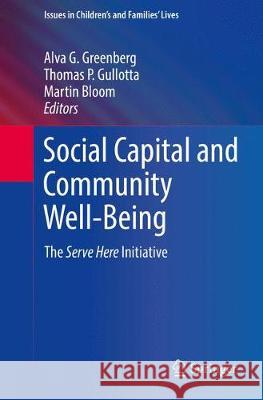Social Capital and Community Well-Being: The Serve Here Initiative » książka
topmenu
Social Capital and Community Well-Being: The Serve Here Initiative
ISBN-13: 9783319931746 / Angielski / Miękka / 2018 / 247 str.
Social Capital and Community Well-Being: The Serve Here Initiative
ISBN-13: 9783319931746 / Angielski / Miękka / 2018 / 247 str.
cena 261,63
(netto: 249,17 VAT: 5%)
Najniższa cena z 30 dni: 250,57
(netto: 249,17 VAT: 5%)
Najniższa cena z 30 dni: 250,57
Termin realizacji zamówienia:
ok. 22 dni roboczych.
ok. 22 dni roboczych.
Darmowa dostawa!
Kategorie:
Kategorie BISAC:
Wydawca:
Springer
Seria wydawnicza:
Język:
Angielski
ISBN-13:
9783319931746
Rok wydania:
2018
Wydanie:
2016
Ilość stron:
247
Waga:
4.16 kg
Wymiary:
23.5 x 15.5
Oprawa:
Miękka
Wolumenów:
01











